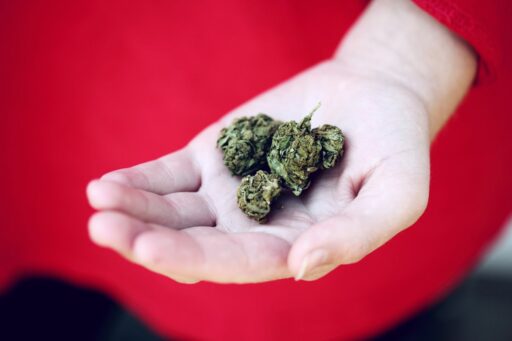As the cannabis landscape continues to evolve across the United States, a growing number of states have legalized marijuana for recreational and medical use. This article provides an up-to-date overview of states where cannabis is legal, delving into the intricacies of possession limits, consumption rules, medical regulations, and the economic and legal impacts in places like the U.S. Virgin Islands. It also offers guidance for seniors and predictions for the future of cannabis legislation.
Key Takeaways
- A significant number of states have legalized recreational and medical marijuana, with varying possession limits and rules for consumption.
- Recent legislative changes in the U.S. Virgin Islands indicate a push towards legalizing recreational cannabis use, potentially affecting the local economy and tourism.
- Medical marijuana regulations vary by state, with different qualifying health conditions and procedures for obtaining medical cards.
- Seniors seeking medical cannabis must navigate state-specific laws and may require resources and support to manage treatment effectively.
- The future of cannabis legislation in the U.S. is marked by trends towards further legalization, though conflicts between federal and state laws persist.
Overview of States with Legal Recreational Marijuana

Current Legal Status by State
As of the latest updates, the legal status of recreational marijuana varies significantly across the United States. Several states have fully legalized the use of recreational marijuana, while others continue to restrict its use to medical purposes only or maintain complete prohibition.
The following is a brief overview of the current legal landscape:
- States with fully legal recreational marijuana include California, Colorado, and Massachusetts, among others.
- A number of states, such as Florida and Texas, allow marijuana for medical use with qualifying health conditions.
- States like Idaho and Wyoming remain with strict laws prohibiting any form of marijuana use.
It’s essential for individuals to verify the specific regulations in their state, as they can differ widely in terms of possession limits, consumption rules, and the process for obtaining medical marijuana. For instance, the Marijuana News website provides archives and recent posts that can be a valuable resource for staying informed on the latest legislative changes, though age verification is required to access the site.
Possession Limits and Consumption Rules
Understanding the possession limits and consumption rules is crucial for individuals who choose to use marijuana legally. Each state has specific regulations that dictate how much cannabis an individual can legally purchase and possess at any given time. For instance, in some states, adults aged 21 and over are allowed to possess up to 2 ounces of marijuana, a half-ounce of cannabis concentrate, and 1 ounce of products such as edibles.
The maximum purchase quantities are monitored by dispensaries through a statewide tracking system, ensuring that individuals do not exceed legal limits.
Medical marijuana patients often have higher possession limits, such as up to 4 ounces of cannabis, 1 ounce of concentrate, and 2 ounces of products. Taxes on dispensary sales vary, with medical marijuana patients typically exempt from these additional costs. The onset of psychoactive and physical effects also varies depending on the method of intake, which is an important consideration for both recreational and medical users.
Here is a brief overview of the possession limits for recreational and medical use in a hypothetical state:
| User Type | Cannabis (Flower) | Concentrate | Edibles |
|---|---|---|---|
| Recreational | 2 ounces | 0.5 ounces | 1 ounce |
| Medical | 4 ounces | 1 ounce | 2 ounces |
It’s essential for users to stay informed about the specific laws in their state to ensure compliance and avoid legal repercussions.
Recent Legislative Changes
In the ever-evolving landscape of cannabis legislation, recent months have seen a wave of changes across various states. Key legislative shifts have been observed in states like New York and Virginia, where new laws have expanded legal access and adjusted possession limits.
- New York has recently passed legislation that increases the amount of marijuana an individual can possess without legal repercussions.
- Virginia, following suit, has also amended its laws to allow for more liberal possession and private consumption.
These changes reflect a broader trend towards the decriminalization and legalization of marijuana, signaling a shift in public perception and governmental stance on cannabis.
It’s important for residents and visitors to stay informed about the current laws in their respective states, as regulations can vary widely and are subject to change.
Medical Marijuana Regulations Across the States

Qualifying Health Conditions
In the realm of medical marijuana, qualifying health conditions are the cornerstone for patient eligibility. Each state has its own list of conditions, but there are commonalities such as cancer, epilepsy, and glaucoma. For instance, in Ohio, conditions like fibromyalgia also make the list.
To establish eligibility, a formal diagnosis is typically required. This can often be confirmed through health records or a letter from a healthcare provider. It’s crucial for patients or their caregivers to review the specific requirements of their state’s medical cannabis program.
While the qualifying conditions vary by state, the necessity for a formal diagnosis is a consistent prerequisite across the board.
Understanding the qualifying conditions is the first step in accessing medical cannabis. Below is a non-exhaustive list of common qualifying conditions:
- Cancer
- Epilepsy
- Glaucoma
- Fibromyalgia
- Hepatitis C
- Inflammatory Bowel Disease
- Lupus
- Lyme Disease
Patient Registration and Medical Cards
The journey to obtaining a medical marijuana card involves several steps, each critical to ensure compliance with state regulations. The process typically begins with a health evaluation by a licensed healthcare provider, who can confirm the patient’s diagnosis and related symptoms, even when prior health records are not available.
To streamline the application process, patients can follow a structured approach:
- Schedule an appointment with a healthcare provider, such as DocMJ.
- Provide medical records for review before the appointment.
- Attend the appointment to determine eligibility for certification.
- Pay the state’s annual medical cannabis program fee to finalize the card registration.
It’s important to note that some healthcare providers may not offer assistance beyond the initial certification. However, providers like DocMJ guide patients through each step, simplifying the application for a medical cannabis card.
Once the medical card is obtained, dispensaries will require its presentation before allowing purchases. For new cardholders, accompanying them on a first visit to a dispensary can be a helpful introduction to the available products.
Possession and Cultivation Guidelines
In the realm of medical marijuana, patients must navigate a variety of guidelines regarding possession and cultivation. Each state has its own set of rules, often with significant differences in the allowed quantities of cannabis and its derivatives.
For instance, medical marijuana patients typically can possess up to 4 ounces of cannabis flower. However, the limits for concentrates and edible products can vary. In some states, patients are allowed to possess 1 ounce of concentrate and 2 ounces of edible cannabis products. It’s crucial for patients to understand these limits to ensure they remain within legal boundaries.
While recreational users may face taxes on their purchases, medical marijuana patients often benefit from tax exemptions, highlighting the importance of proper patient registration.
Cultivation guidelines also differ by state, with some allowing home cultivation for personal medical use. Patients should consult their state’s regulations to determine if they are eligible to grow cannabis plants and, if so, how many they are allowed to cultivate.
Understanding the Cannabis Laws in the U.S. Virgin Islands

Approved Rules for Recreational Use
Following a significant delay, the U.S. Virgin Islands have made a decisive move towards legalizing recreational cannabis. An advisory board recently approved a comprehensive list of rules and regulations, marking a pivotal moment in the territory’s approach to cannabis use. The law permits individuals 21 years and older to possess up to 2 ounces of marijuana, a half-ounce of cannabis concentrate, and 1 ounce of cannabis-infused products.
For medical marijuana patients, the possession limits are increased, allowing up to 4 ounces of cannabis, 1 ounce of concentrate, and 2 ounces of cannabis-infused products. This distinction underscores the territory’s commitment to accommodating both recreational users and patients with medical needs.
The approval of these regulations is expected to initiate a 30-day public comment period, offering residents the opportunity to voice their opinions and contribute to the finalization of the cannabis framework in the U.S. Virgin Islands.
The following table summarizes the possession limits for recreational and medical use:
| User Type | Marijuana | Cannabis Concentrate | Cannabis-Infused Products |
|---|---|---|---|
| Recreational | 2 ounces | 0.5 ounces | 1 ounce |
| Medical | 4 ounces | 1 ounce | 2 ounces |
As the public comment period approaches, stakeholders are encouraged to participate in shaping the future of cannabis legislation in the territory.
Impact on Local Economy and Tourism
The approval of proposed rules for recreational marijuana use in the U.S. Virgin Islands marks a significant shift in the local economy and tourism sector. Anticipated benefits include increased tourism, job creation, and new revenue streams from cannabis-related businesses.
- Tourism boost: Visitors interested in cannabis tourism may choose the U.S. Virgin Islands as a new destination.
- Job opportunities: The cannabis industry could create jobs in cultivation, retail, and ancillary services.
- Revenue generation: Taxes from marijuana sales can support public services and infrastructure.
The move towards legalizing recreational marijuana is expected to provide a competitive edge in attracting tourists, especially from regions where marijuana remains illegal.
Comparison with Mainland U.S. Regulations
The U.S. Virgin Islands’ recent advancements in cannabis legislation mark a significant divergence from many mainland U.S. regulations. The approval of proposed rules for recreational cannabis use is a bold step that contrasts with the stalled efforts in some states. Unlike the patchwork of laws across the 50 states, the U.S. Virgin Islands is moving towards a more unified regulatory framework.
The U.S. Virgin Islands’ approach to cannabis regulation could serve as a model for states struggling to implement cohesive policies.
While the mainland sees a variety of possession limits and consumption rules, the U.S. Virgin Islands aims for consistency across its territory. This could simplify the legal landscape for both residents and tourists, potentially boosting the local economy. Here’s a quick comparison:
- Mainland U.S.: Varying laws state-by-state, complex legal environments.
- U.S. Virgin Islands: Unified regulations, streamlined legal process.
The public comment period on these proposed regulations will provide valuable insights into the community’s perspective and could influence the final implementation of the law.
Guidance for Seniors and Medical Cannabis

Navigating State Laws and Qualifications
For seniors and their caregivers, understanding and navigating the qualifications and state laws surrounding medical cannabis is crucial. The journey begins with verifying that the senior has a qualifying health condition recognized by the state’s medical cannabis program. This information can be found on the state’s medical cannabis authority website or through resources like DocMJ.
A crucial step is having a sit-down conversation to review the state’s cannabis laws. This helps clarify that medical cannabis use is legal for qualified patients and outlines important aspects such as possession limits and consumption regulations. It’s also an opportunity to ensure that the senior maintains a valid medical marijuana card and is aware of places where cannabis use is prohibited.
Once the legal and health requirements are understood, seniors may feel more confident in exploring medical cannabis as a treatment option for chronic symptoms.
The following steps outline the process:
- Verify the senior’s health condition is on the state’s list of qualifying conditions.
- Research the specific cannabis laws and regulations in your state.
- Have an open discussion about the legality and responsible use of medical cannabis.
- Ensure the senior has or obtains a valid medical marijuana card.
- Discuss the importance of adhering to state laws regarding possession and consumption.
Resources and Support for Older Adults
For many seniors, the transition to using medical cannabis can be daunting due to the stigma and lack of clear information. Resources tailored to older adults are crucial in facilitating this shift. Services such as online mental health counseling, patient care, and access to CBD products are becoming more available to assist seniors in navigating the world of medical cannabis.
Older adults often seek alternatives to traditional prescription medications due to adverse side effects. Medical cannabis may offer a viable option, and having a knowledgeable support system is key. Family members who are experienced with medical cannabis can play a significant role in providing guidance and reassurance.
- Addressing generational bias against cannabis treatments
- Understanding qualifying health conditions
- Reviewing current prescription medications
- Previewing dispensary products online
It’s important to approach conversations about medical cannabis with empathy and openness, as this can lead to better symptom management and an improved quality of life for seniors.
The Role of Caregivers in Managing Treatment
For many seniors, the journey into medical cannabis treatment is often navigated with the help of a caregiver. Caregivers play a crucial role in assisting older adults with obtaining and administering medical cannabis, especially for those who may face mobility or cognitive challenges.
When considering cannabis as a treatment option, it’s important to address any generational bias and have open, empathetic conversations with aging parents about the potential benefits and risks.
Here are some steps to guide caregivers in managing medical cannabis treatment for seniors:
- Step 1: Confirm if the senior has a qualifying health condition.
- Step 2: Review the senior’s current prescription medications for potential interactions.
- Step 3: Explore dispensary products online to preview options.
Caregivers should also be aware of the legal provisions that allow them to assist registered patients. This includes understanding the specific regulations in their state regarding caregiver roles and responsibilities.
The Future of Cannabis Legislation

Trends in State Legalization Efforts
The momentum for legalizing recreational marijuana continues to grow across the United States. States are increasingly moving towards legalization, reflecting a shift in public opinion and the potential for significant economic benefits. The trend is not only seen in the mainland U.S. but also in territories like the U.S. Virgin Islands, which recently pushed forward on stalled legislation for recreational use.
- Growing acceptance: Public sentiment has shifted in favor of legalization, with more Americans supporting the move than ever before.
- Economic incentives: States are recognizing the financial advantages of legal cannabis markets, including job creation and tax revenue.
- Legislative hurdles: Despite progress, some regions face challenges such as bill wording issues and advisory board logistics.
The evolving landscape of cannabis laws in the U.S. reflects a complex interplay of social, economic, and political factors.
Federal vs. State Law Conflicts
The dichotomy between federal and state cannabis laws creates a complex legal landscape for individuals and businesses. Federal law classifies marijuana as a Schedule I controlled substance, making its possession, sale, or use illegal at the national level. However, numerous states have enacted laws legalizing marijuana for medical or recreational use, challenging federal statutes.
While state laws provide a degree of protection within their borders, individuals and businesses still face potential federal legal risks. This conflict can affect banking, taxation, and interstate commerce related to cannabis.
The table below outlines the current status of marijuana legalization in selected states, highlighting the contrast with federal law:
| State | Medical Marijuana | Recreational Marijuana |
|---|---|---|
| California | Legal | Legal |
| Texas | Limited Use | Illegal |
| New York | Legal | Legal |
| Florida | Legal | Illegal |
Understanding these discrepancies is crucial for anyone navigating the cannabis industry or considering personal use. It is important to stay informed about both state and federal regulations to ensure compliance and avoid legal complications.
Predictions for Upcoming Ballots and Reforms
As the cannabis industry continues to evolve, predictions for upcoming ballots and reforms are a topic of keen interest. With the recent legalization of recreational marijuana in the U.S. Virgin Islands and the ongoing public comment period, it’s clear that the momentum for change is building.
The landscape of cannabis legislation is dynamic, with various states poised to consider new reforms or enter the legal market. This underscores the importance of staying informed and engaged with the legislative process.
Looking ahead, experts from MJBizDaily suggest that 2024 could be a pivotal year, with the potential rescheduling of marijuana and additional states joining the ranks of those with legalized cannabis. Here’s a brief overview of what to watch for:
- Rescheduling efforts at the federal level that could redefine cannabis regulation.
- New states likely to hold ballots on legalizing recreational or medical marijuana.
- Legislative changes in states with existing legal markets to refine regulations.
- Economic impacts that could influence political support for legalization.
While the specifics of each state’s approach will vary, the trend towards legalization and regulation seems to be gaining broader acceptance across the country.
Conclusion
As the landscape of marijuana legalization continues to evolve across the United States, it is clear that the movement towards legal cannabis is gaining momentum. With a growing number of states embracing both medical and recreational use, individuals are finding increased access to cannabis products for a variety of uses. The recent developments in the U.S. Virgin Islands, along with the detailed state laws and regulations discussed in this article, highlight the importance of staying informed about the legal status of marijuana in one’s own state. Whether for medical purposes or adult recreational use, understanding the specific laws, such as possession limits and consumption regulations, is crucial for responsible use. As the conversation around cannabis continues to unfold, it will be interesting to see how federal and state policies align in the future to reflect the changing attitudes towards this once-prohibited plant.
Frequently Asked Questions
What are the possession limits for recreational marijuana in states where it’s legal?
Possession limits vary by state, but a common allowance is up to 2 ounces of marijuana, a half-ounce of cannabis concentrate, and 1 ounce of products such as edibles for recreational use.
Can medical marijuana patients possess more cannabis than recreational users?
Yes, medical marijuana patients often have higher possession limits. For instance, they may be allowed to possess up to 4 ounces of cannabis, 1 ounce of concentrate, and 2 ounces of cannabis products.
How can seniors qualify for medical cannabis?
Seniors must have one of the accepted qualifying health conditions. They can find resources and information online or through medical cannabis authority and program websites in their state.
Are there resources to help older adults navigate medical cannabis laws?
Yes, there are various resources available, including websites like DocMJ and state-specific medical cannabis programs, which provide guidance for older adults and caregivers.
How has the U.S. Virgin Islands progressed with marijuana legalization?
The U.S. Virgin Islands have recently made progress by having an advisory board approve a list of proposed rules and regulations for the recreational use of cannabis in the territory.
What impact could the legalization of recreational marijuana in the U.S. Virgin Islands have on the local economy and tourism?
The legalization of recreational marijuana in the U.S. Virgin Islands is expected to boost the local economy and tourism by attracting visitors interested in legally purchasing and using cannabis.





